« January 24, 2019 | Main | January 26, 2019 »
January 25, 2019
First Observance of International Day of Education
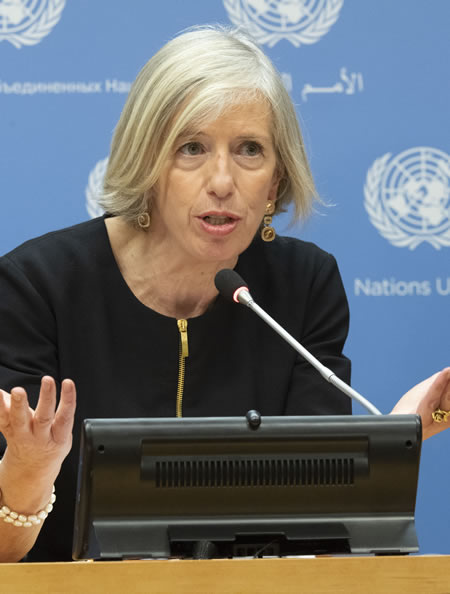
Photo: Stefania Giannini, Assistant Director-General for Education for the United Nations Educational, Scientific and Cultural Organization (UNESCO), briefs press on the occasion of the International Day of Education (24 January), in recognition of the role of education for peace and sustainable development. 24 January 2019. United Nations, New York. UN Photo/Evan Schneider.
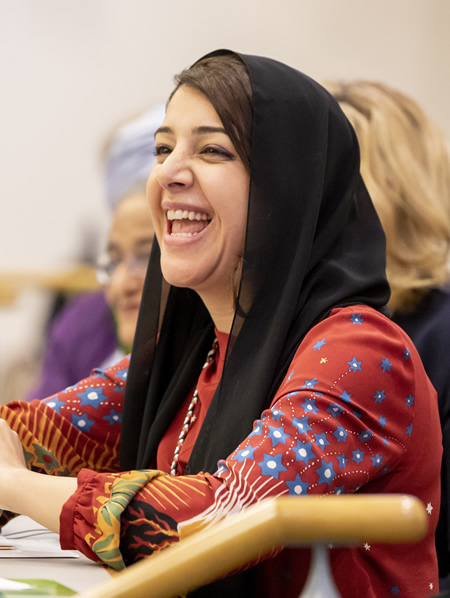
Photo: A participant speaks at the event “Making Impossible Possible: Unlocking Human Potential through the International Finance Facility for Education.” 24 September 2018. United Nations, New York. UN Photo/Laura Jarriel. (File Photo)
New York, 24 January 2019 — The United Nations observed the first International Day of Education to emphasize the action required to achieve the global education goals and targets in line with the 2030 Agenda for Sustainable Development. The celebration raised awareness of the crucial role of quality and relevant education for peace and development worldwide, including its contribution to poverty eradication, environmental sustainability and building peaceful and resilient societies. The event brought together the voices of governments, the UN system, private sector, civil society, faith-based organizations, teachers, academia and youth, united in their call to make education a leading global priority.
Recently, the United Nations General Assembly had proclaimed 24 January as International Day of Education in celebration of the role of education for peace and development.
Education is a human right, a public good, and a civic responsibility.
Source: UNESCO, Paris
|GlobalGiants.Com|
We're excited to celebrate the first International Day of Education! It's a day to recognize the importance of education for peace and development, and promote inclusive, equitable and quality education for all. Won't you join us? #EducationDay pic.twitter.com/laHYcybJVV
— Microsoft Education (@MicrosoftEDU) January 24, 2019
Education transforms lives and is at the heart of our mission to build peace, eradicate poverty & drive sustainable development.
— UNESCO (@UNESCO) January 24, 2019
🌠https://t.co/HDZzQTaRlN #EducationDay pic.twitter.com/JvZhNCuHPK







Edited & Posted by the Editor | 11:06 AM | View the original post
UN Secretary-General: Fragmented Response to Global Risk a ‘Recipe For Disaster’
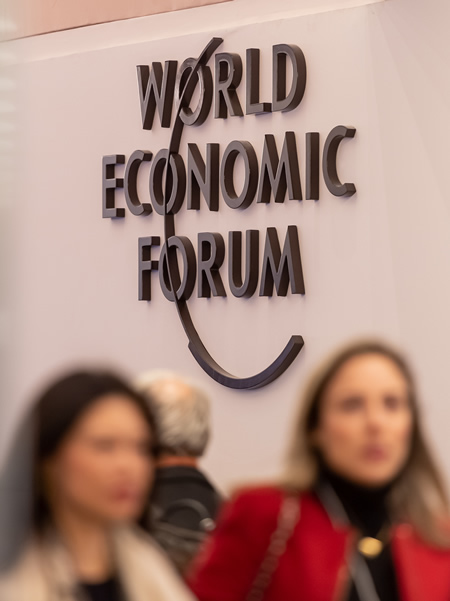
Photo: Impressions from the Annual Meeting 2019 of the World Economic Forum in Davos, January 22, 2019. Image provided by & copyright © World Economic Forum / Sandra Blaser.
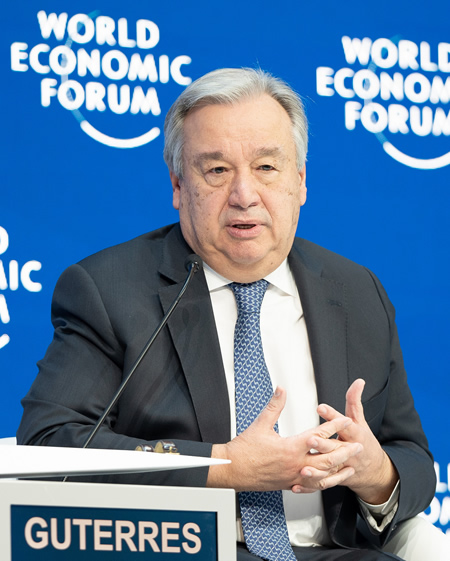
Photo: Antonio Guterres, Secretary-General, United Nations, New York, captured during the Session “Special Address by António Guterres, Secretary-General of the United Nations” at the Annual Meeting 2019 of the World Economic Forum in Davos, January 24, 2019. Congress Centre - Congress Hall. Image provided by & copyright © World Economic Forum / Sikarin Fon Thanachaiary.
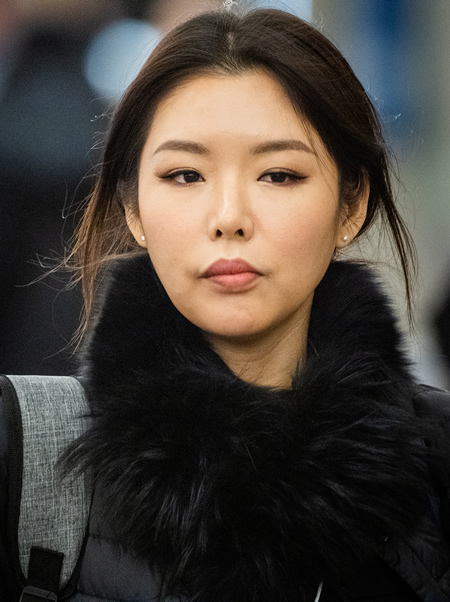
Photo: A participant at the Annual Meeting 2019 of the World Economic Forum in Davos, January 21, 2019. Image provided by & copyright © World Economic Forum / Boris Baldinger.
Davos-Klosters, Switzerland, 24 January 2019. — “If I have to select one sentence to describe the state of the world, I would say we are in a world in which global challenges are more integrated, and the responses are more and more fragmented. If these are not reversed, it is a recipe for disaster,” warned UN Secretary-General António Guterres in his address at the World Economic Forum Annual Meeting today.
Outlining the current risk landscape, one characterized by the megatrends of climate change, migration, digitalization, and protracted conflict, the UN Secretary-General identified climate change as the most critical systemic threat soon and one, he said, “we are losing the race on.”
“Climate change is running faster than we are and we have this paradox,” Guterres observed, “The reality is proving to be worse than what scientists foresaw, and all the large indicators show that, and we are moving dramatically into runaway climate change if we are not able to stop it.”
Pointing to growing complexity in the international community and global trade, Guterres argued that, geopolitically, the world is in a state of turbulent flux. “We no longer live in a bipolar or unipolar world, but we are not yet in a multipolar world; we are in a kind of chaotic situation of transition,” he told political, and business leaders gathered in Davos. “The relationship between the three most important powers, Russia, the US and China, has never been as dysfunctional as it is today and this is true for the economy, and also true in the paralysis of the UN Security Council.”
To address the complexity and interconnectedness of the myriad risks ahead, the real frustrations of the “rust belts of the world” and a trend of “illiberal democracies,” the UN head advocated only one approach. “I am a multilateralist; I am deeply convinced there is no other way to deal with global problems but with global responses. It is also not enough to vilify those that disagree and call them nationalists or populists,” he stressed: “We need to understand the root causes of why large sectors of the population in different parts of the world today disagree with us - and we need to address those root causes and show these people that we care for them.”
Tackling global crises - from combating climate change to developing a set of rules on the “weaponization of AI” - cannot be achieved by any one country, but should be addressed collectively by governments, the private sector, civil society, and academia urged Guterres.
Representing an organization of 100 million people, operating in 40 countries and mobilizing some $15 billion, Guterres said that, in 2019, the UN will be pushing for a surge in diplomacy for peace in some of the world’s hotspots - including Yemen, Syria and South Sudan - and higher spending on mitigating climate change. As part of bureaucratic reform, he added that the UN expects to achieve internal gender parity by 2028.
Turning to the disruptive and transformative impacts of the Fourth Industrial Revolution, Guterres suggested engaging more financial institutions to invest in developing countries and promote social and green bonds, dealing with the massive restructuring of the labor force and redesigning our education systems.
“We need to mobilize governments, the business community and civil society to understand what kind of impact the Fourth Industrial Revolution is going to have in the next decade and what kind of measures can we start taking, such as in education,” he mused. “It doesn’t matter how many things you learn but how you learn to learn because you will be doing many different things.”
The World Economic Forum Annual Meeting brings together more than 3,000 global leaders from politics, government, civil society, academia, the arts, and culture as well as the media. It engages some 50 heads of state and government, more than 300 ministerial-level government participants, and business representation at the chief executive officer and chair level. Convening under the theme, Globalization 4.0: Shaping a Global Architecture in the Age of the Fourth Industrial Revolution, participants are focusing on new models for building sustainable and inclusive societies in a plurilateral world.
Source: World Economic Forum
|GlobalGiants.Com|
There is a contradiction in the world today: global challenges are interlinked, but our response is fragmented. We need more integrated global action to repair broken trust and uphold dignity for all. My intervention at #WEF19 with @borgebrende: https://t.co/1n8s9FB1do pic.twitter.com/Q3Xo79XJOm
— António Guterres (@antonioguterres) January 24, 2019







Edited & Posted by the Editor | 8:05 AM | View the original post







